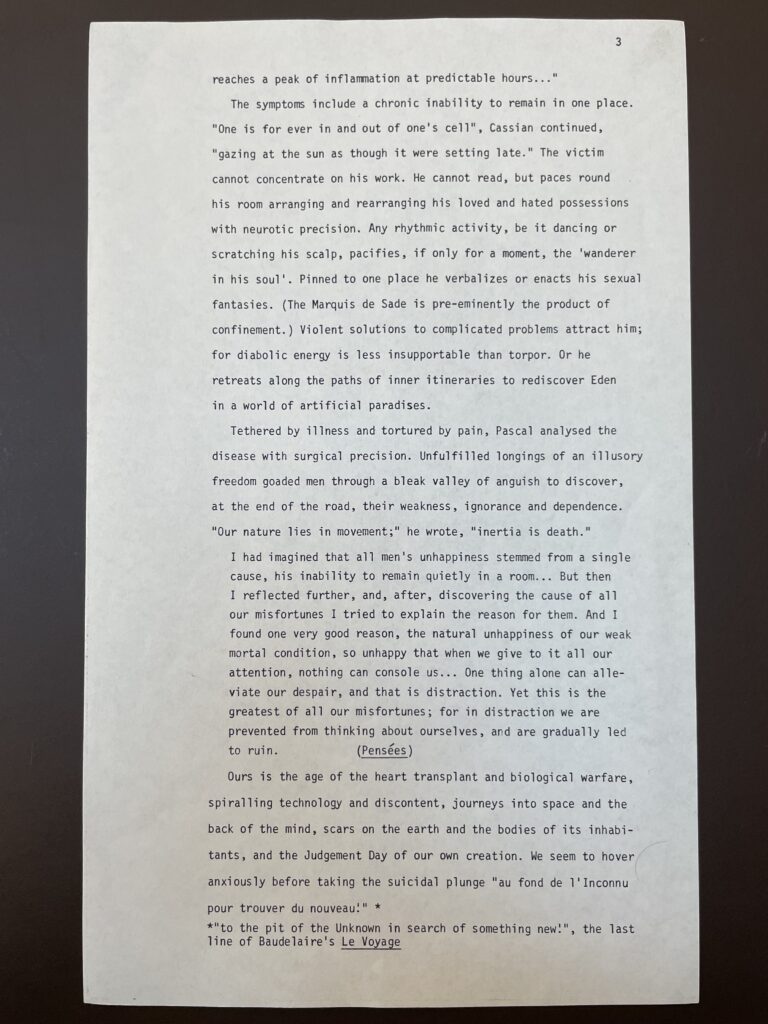The Nomadic Alternative – Page 3
The Nomadic Alternative
Page 3
reaches a peak of inflammation at predictable hours…
The symptoms include a chronic inability to remain in one place.
“One is for ever in and out of one’s cell”, Cassian continued,
“gazing at the sun as though it were setting late.” The victim
cannot concentrate on his work. He cannot read, but paces round
his room arranging and rearranging his loved and hated possessions
with neurotic precision. Any rhythmic activity, be it dancing or
scratching his scalp, pacifies, if only for a moment, the ‘wanderer
in his soul’. Pinned to one place he verbalizes or enacts his sexual
fantasies. (The Marquis de Sade is pre-eminently the product of
confinement.) Violent solutions to complicated problems attract him;
for diabolic energy is less insupportable than torpor. Or he
retreats along the paths of inner itineraries to rediscover Eden
in a world of artificial paradises.
Tethered by illness and tortured by pain, Pascal analysed the
disease with surgical precision. Unfulfilled longings of an illusory
freedom goaded men through a bleak valley of anguish to discover,
at the end of the road, their weakness, ignorance and dependence.
“Our nature lies in movement;” he wrote, “inertia is death.”
I had imagined that all men’s unhappiness stemmed from a single
cause, his inability to remain quietly in a room… But then
I reflected further, and, after, discovering the cause of all
our misfortunes I tried to explain the reason for them. And I
found one very good reason, the natural unhappiness of our weak
mortal condition, so unhappy that when we give to it all our
attention, nothing can console us… One thing alone can alle-
viate our despair, and that is distraction. Yet this is the
greatest of all our misfortunes; for in distraction we are
prevented from thinking about ourselves, and are gradually led
to ruin. (Pensées)
Ours is the age of the heart transplant and biological warfare,
spiralling technology and discontent, journeys into space and the
back of the mind, scars on the earth and the bodies of its inhabi-
tants, and the Judgement Day of our own creation. We seem to hover,
anxiously before taking the suicidal plunge “au fond de l’Inconnu
pour trouver du nouveau!”*
*“to the pit of the Unknown in search of something new”, the last
line of Baudelaire’s Le Voyage
Editor's Note: This text has been transcribed automatically and likely has errors. if you would like to contribute by submitting a corrected transcription.
